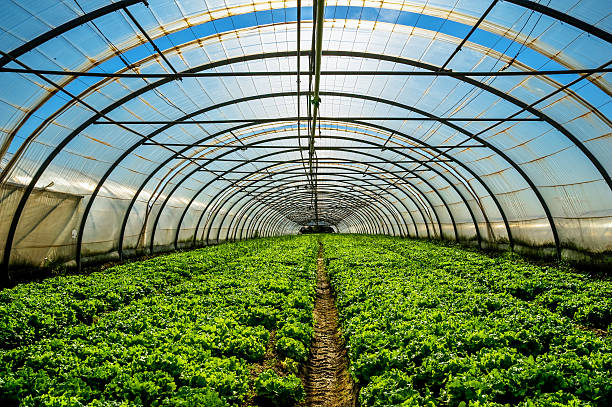Tailored to Perfection: Monarch Custom Greenhouse Utah Craftsmanship
Greenhouse Farming: Optimizing Crop Yields and Sustainability
Are you looking to optimize your crop yields while advertising sustainability? Look no more than greenhouse farming. With controlled settings and decreased water usage, greenhouse farming uses the ideal solution for year-round manufacturing of fresh produce. By using the power of modern technology and sustainable methods, you can make certain an abundant harvest while minimizing your ecological impact. Discover the benefits of greenhouse farming and start profiting today!
Advantages of Greenhouse Farming
Are you questioning what makes greenhouse farming so beneficial? Well, allow me tell you! Among the major benefits of greenhouse farming is the capacity to control the atmosphere in which plants are grown. With a greenhouse, you can control variables like humidity, temperature level, and light to optimize plant growth. This indicates that you can expand crops throughout the year, no matter the climate condition outside.
Another benefit of greenhouse farming is the decrease in water usage. By utilizing water extra effectively, greenhouse farming aids to conserve this valuable source.
Additionally, greenhouse farming permits far better pest and illness monitoring. With the regulated environment, it is much easier to manage the spread and protect against of conditions and parasites. This decreases the requirement for harmful pesticides, making greenhouse-grown crops much safer and extra environmentally friendly.
Additionally, greenhouse farming supplies defense versus severe climate events. Crops grown in greenhouses are shielded from heavy rain, strong winds, and hailstorms, which can damage or ruin outside plants. Monarch Greenhouse construction Utah. This security guarantees a much more steady and trustworthy plant return, also during unforeseeable climate condition

Making Best Use Of Plant Yields With Controlled Environments
To make best use of crop yields in greenhouse farming, you can accomplish ideal outcomes by regulating the setting. One of the essential advantages of greenhouse farming is the capability to manage these ecological factors, allowing you to tailor them to the particular requirements of each plant. By applying these regulated environments, you can make the most of crop yields and accomplish constant, high-grade fruit and vegetables throughout the year.
Supporting Sustainability Via Greenhouse Farming
Make the most of sustainability in greenhouse farming by executing effective resource management techniques. One key aspect of promoting sustainability is the monitoring of water use. By applying systems such as drip watering and recirculation, you can substantially minimize water waste and guarantee that every decrease counts. In addition, making use of naturally degradable and organic products for parasite control and fertilizing can help minimize ecological influence. Integrated Bug Administration (IPM) techniques, for instance, entail the usage of useful insects to control parasites, minimizing the requirement for hazardous chemicals. Energy usage can be decreased by making use of sustainable energy resources, such as solar panels, to power greenhouse operations. This not just decreases dependence on nonrenewable fuel sources yet likewise lowers greenhouse gas exhausts. Proper waste administration is an additional important element in advertising sustainability. Implementing recycling and composting systems can minimize the amount of waste sent out to landfills while likewise giving nutrient-rich compost for plant development. Incorporating sustainable methods in greenhouse layout, such as using energy-efficient products and maximizing natural lights, can further improve sustainability. By taking on these resource administration strategies, you can add to a more sustainable future in greenhouse farming.
Lowering Water Use in Greenhouse Farming
By implementing efficient water management methods, you can substantially minimize water use in greenhouse farming. Water is a crucial resource in farming, and conserving it why not try these out not just profits the setting however also assists to maximize plant yields and profitability. One efficient approach to minimize water use is with using drip watering systems. These systems provide water straight to the plant's roots, minimizing evaporation and making certain that every drop is used successfully. Additionally, monitoring and controlling the humidity degrees inside the greenhouse can protect against unneeded water loss. By utilizing sensing units and automated systems, you can adjust the ventilation and watering accordingly, maximizing water use based on the specific demands of your plants. One more strategy is to record and reuse rain. Collecting rain from the greenhouse roofing and storing it in tanks enables you to supplement your irrigation requires without depending entirely on freshwater resources. Applying mulching methods can help preserve soil dampness, minimizing the frequency of watering. Mulch acts as an obstacle, avoiding water dissipation and keeping the dirt cool and moist. By adopting these water-saving methods, you can minimize water waste, preserve resources, and produce an extra sustainable future for greenhouse farming.
Year-Round Production of Fresh Create in Greenhouses
Greenhouses give a controlled setting that enables you to expand crops no matter of the outside weather problems. Greenhouses can be geared up with home heating and cooling systems to keep ideal temperatures for various plants. By executing these techniques, you can make best use of the efficiency of your greenhouse and delight in a constant supply of fresh produce all year long.

Verdict
In verdict, greenhouse farming supplies various advantages for making the most of plant returns and link promoting sustainability. Additionally, greenhouse farming permits for minimized water usage, making it an environmentally pleasant option.
One of the significant power edger advantages of greenhouse farming is the ability to regulate the setting in which crops are expanded.To optimize crop returns in greenhouse farming, you can accomplish optimal outcomes by managing the setting. One of the crucial advantages of greenhouse farming is the capacity to regulate these ecological elements, allowing you to tailor them to the specific requirements of each crop.By applying efficient water monitoring methods, you can dramatically minimize water use in greenhouse farming.In final thought, greenhouse farming provides many advantages for optimizing crop returns and advertising sustainability.